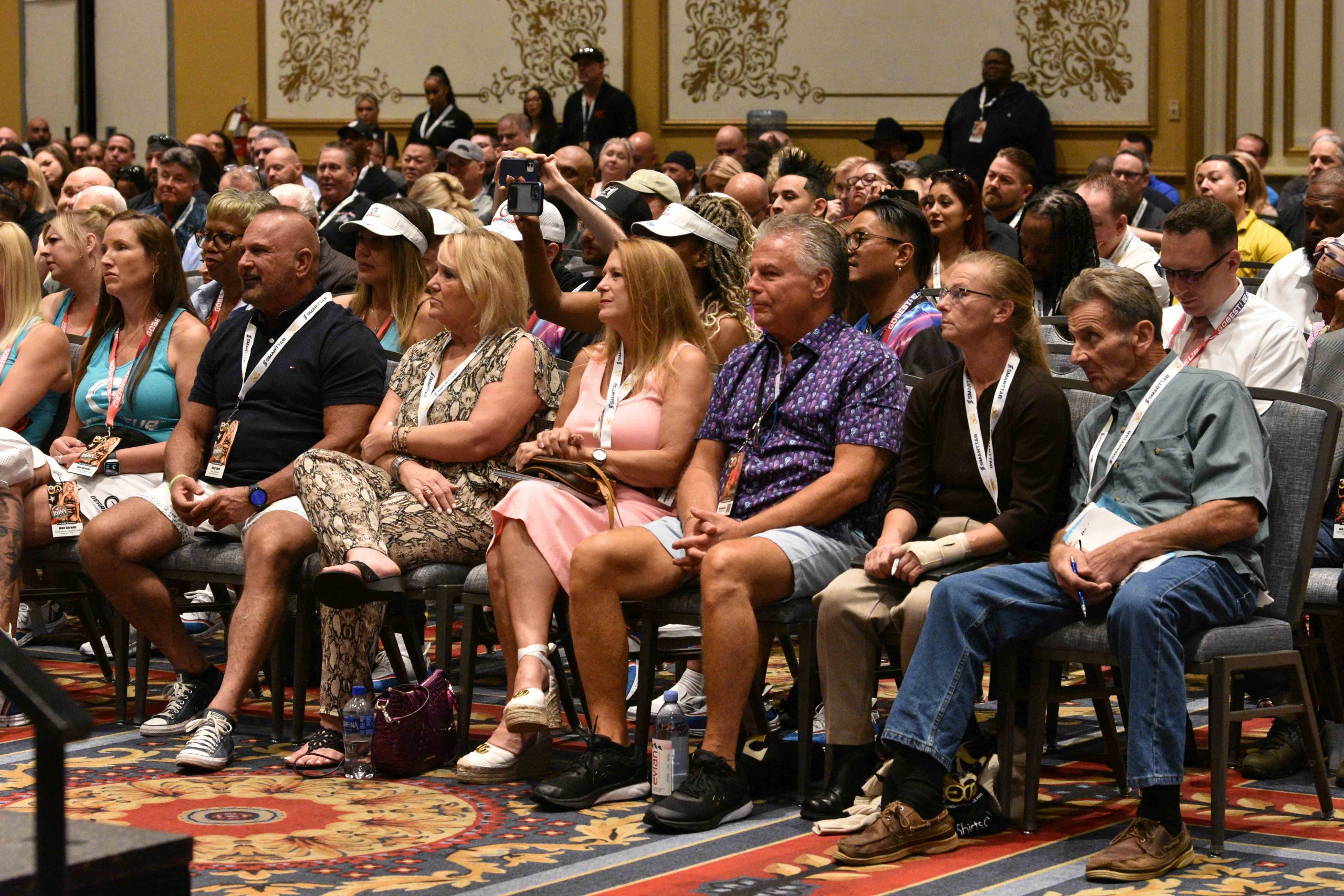The Founders Panel: Words of wisdom from the OGs
A conversation with
Harry Mohney, Michael J. Peter, David “Slim” Baucom and Brad Shafer
with moderation by ED Publisher, Dave Manack
Founder of the Continental Theatrical Agency
Interview and story by ED Founder Don Waitt
(NOTE: This story appears in the November 2023 issue of ED Magazine.)
T
he first panel session of EXPO 2023 was the “Founders Panel,” a live version of ED’s Founders Interview Series, an in-depth series of interviews in ED Magazine by ED Founder Don Waitt with the industry’s leaders whose contribution to the growth and success of the industry has been substantial and long-running.
The series kicked off this year with an interview with Deja Vu/Hustler Clubs founder Harry Mohney (January 2023 issue); followed by interviews with Michael J. Peter, founder of The Dollhouse/Solid Gold/Pure Platinum clubs (March 2023 issue); David “Slim” Baucom of the MAL Entertainment chain of clubs in the Carolinas and Florida (May 2023 issue); First Amendment attorney Luke Lirot (July 2023 issue); and Spearmint Rhino founder John Gray (September 2023 issue).
Waitt, Mohney, Peter and Baucom were on hand for the EXPO 2023 Founders Panel. John Gray, who planned to attend, was unfortunately stuck on the West Coast because of Hurricane Hilary. First amendment attorney Brad Shafer, a future interviewee for the series, filled in for Lirot who could not attend due to a family emergency (which was resolved favorably).
Moderating the panel and shooting questions to the panelists was ED Publisher Dave Manack.
DAVE MANACK: In the 30 years of EXPO, there has never been a panel session that featured all these gentlemen. The first question is to Don and what led you to start the Founders Interview Series?
DON WAITT: The first reason is, no one up here is getting any younger. I thought, now’s the time to chronicle these founders’ contributions to the industry. ED Publications and the EXPO would not be what they are today without the support of the gentlemen up here. In the first 10 to 20 years of ED, they bought all the ads, they bought all the sponsorships, and they brought all the people to the EXPO. So ED, and really the entire industry, owes them a great debt of gratitude. They didn’t need to give money and support because they were all already successful, but they saw the need for the industry to be united. For me, it’s a real privilege to sit down with these guys and pick their brains. And so far, they’ve been very candid in the interviews.
The second reason is, if you Google their names, you don’t really find any articles about them. Fortune Magazine and The Wall Street Journal are not doing profiles on them, and I thought it was important that we chronicle what they’ve done.
And the third reason is that since we put all the ED Magazine articles on the Internet, the history and contributions of these founders will be there until the end of time. So 200 years from now, if people want to look back and ask “What was that stripclub industry thing all about and who did it?” they’ll be able to read and find out.
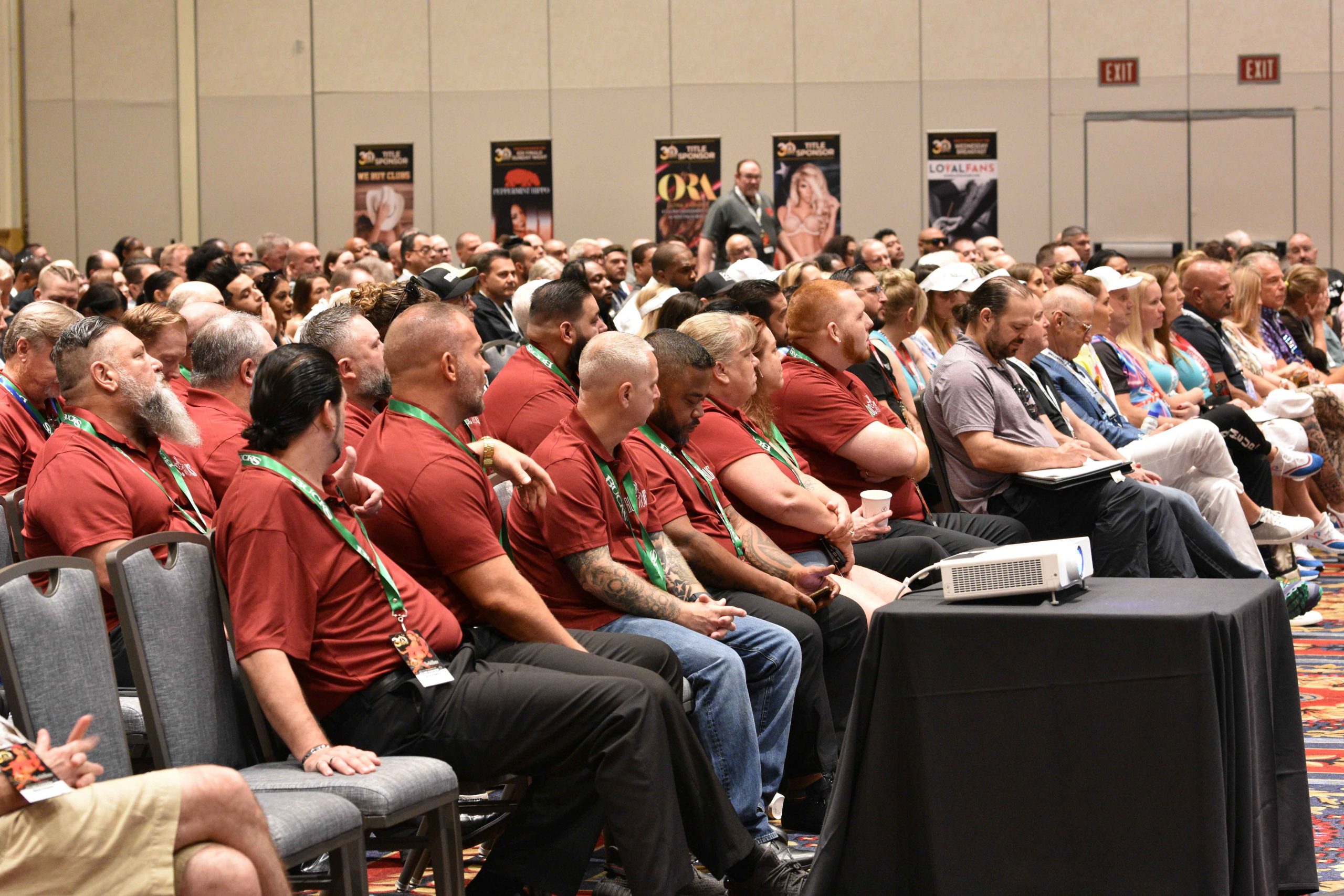
MANACK: When the first EXPO started in 1993, did you think that an industry full of people who were at best competitors, and at worst enemies, could come together and help each other and form a bond?
HARRY MOHNEY: First of all, I was delighted that you decided to have a convention and a magazine. My theory has always been that, divided we fall, together we stand. By working together and developing associations and relationships, we were able to carry this industry forward. And we had a spokesperson, or a “spokesmagazine” with people who could answer calls intellectually, that weren’t in the industry, meaning the magazine editors. They had credibility where we were just smut peddlers. So I really thought that, yes, this magazine had a great opportunity to be successful.
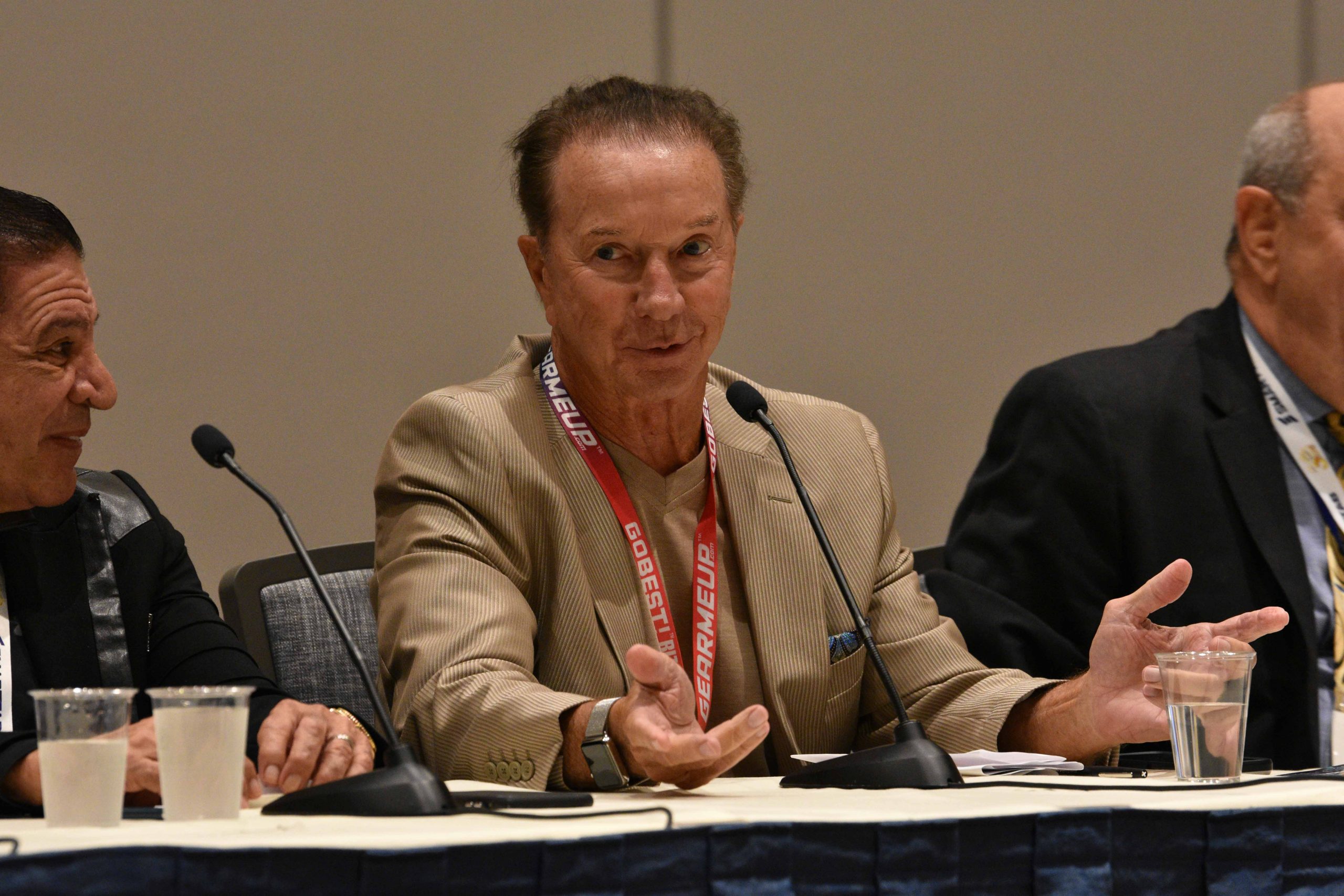
“The minute you stray and think at the end of the night, you’re going to go home with your buddies and three or four girls, you’re going to destroy the business that you operate. So stay away from the party. You throw the party; let somebody else go to the party.”
— Harry Mohney, Deju Vu/Hustler Clubs
MANACK: Dave, I’ve heard you say many times, even as a veteran operator, that the EXPO always gives you something to bring back.
DAVE BAUCOM: At every EXPO I’ve come away with something that will make my clubs a little bit better. And of course, I go back and I tell people and I take all the credit for it. Being around people like you in this room, going to the tradeshow, seeing new products, and going to the panels has been beneficial for me for the last 30 years. It has been very successful in helping make my company grow to what it is today. I hope each and every one of y’all will take away something from it, to go back and make your business a little bit better.
MANACK: Brad, you’re coming at it from a different perspective as a First Amendment attorney. What were your first perceptions of this EXPO in terms of what it was and how it grew?
BRAD SHAFER: Let me give you a real world example of why it was important for me, a lawyer who represents a lot of the club owners in this room, to have everyone rowing in the same direction. A number of you out in the audience, you steal my dancer contracts; you know who you are. And then when you get sued, you go out and hire a Wilson trust lawyer and you lose, as you should lose. And then I have to change my contract, which hurts the rest of the industry. So, instead, if everybody can be rowing in the same direction, and everybody can get the information that they need here, like certificates for going to certain classes, that’s what helps the industry. Because the less litigation you have, the more money that stays in your pocket, which is what all you guys want.
MANACK: What is one of the biggest mistakes club owners today make? And what advice would you give them to rectify the situation?
MOHNEY: Historically, a lot of operators thought this was a playground where you could party, drink and chase the girls. But it really is a business. If you’re going to be successful, you have to operate like a business. Look at the commodity you sell, which to me is the entertainment. You need to keep the entertainment at a value worth what people are paying for. If you keep that in mind at all times, you’ll find success. The minute you stray and think at the end of the night, you’re going to go home with your buddies and three or four girls, you’re going to destroy the business that you operate. So stay away from the party. You throw the party; let somebody else go to the party.
PETER: I would ditto in capital letters what Harry just said.
After spending a year in federal prison and a couple of years on probation, all of my guys, former managers, were calling me up saying, “When are you going to reopen some clubs?” I said, “Why do you guys keep calling me about opening another club. I’m a felon. I’m never going to open another club. If I taught you one thing, it was to be an entrepreneur. You all are great at what you do. Obviously, since you’re running the top places in the country, you have a pedigree. So go do it yourself.”
My point to you is, if you know how to do it, then go do it. But the biggest mistake that people make when they do that, and they’re looking for an investor, they’re starting with other people’s money and those people always end up thinking they’re geniuses when you start making them a lot of money. And they think they can run it better than you.
SHAFER: From my perspective, having represented clubs since 1986, the biggest mistake club owners make is burying their heads in the sand.
Winston Hines, a broker, called to tell me he has a client, a new club owner, who just got sued on the Fair Labor Standards Act case, because he doesn’t have an entertainer contract. In this day and age, not having a contract, that club owner buried his head in the sand and did nothing.
Through ACE, through ED Publications, through the EXPO, we’ve done so much training to give you guys so many skills and tools to protect yourself. That’s what everybody’s here for. The plaintiff lawyers have said they’re not going after the big clubs. They’re going after the small club owners because you guys are the low hanging fruit. You bury your heads in the sand. You don’t do anything to protect yourself, so you are easy pickings for the plaintiff bar.
WAITT: When I do the Founders Interviews, and ask these guys what the main problem is, they all say treating the club like it’s a playground is the biggest mistake.
Another interesting thing about these founders is that their favorite words to hear are, “You can’t do that.” Because they love a challenge. They love being told they can’t do something and then they find a way around it and do it. When I interviewed Slim (Dave Baucom), I asked him, “If you could buy one of two clubs for the same price, but one club is operating at 100 percent and the other club at just 80 percent, which one are you going to buy?” And Slim said, “That’s easy. I’m gonna buy the one at 80 percent because I’m gonna make it go past 100 percent.” So that’s the thing; these founders like a challenge. All club operators run into roadblocks. But if want to pattern yourself after the success of these gentlemen, you have to accept the challenges and not let them defeat you.
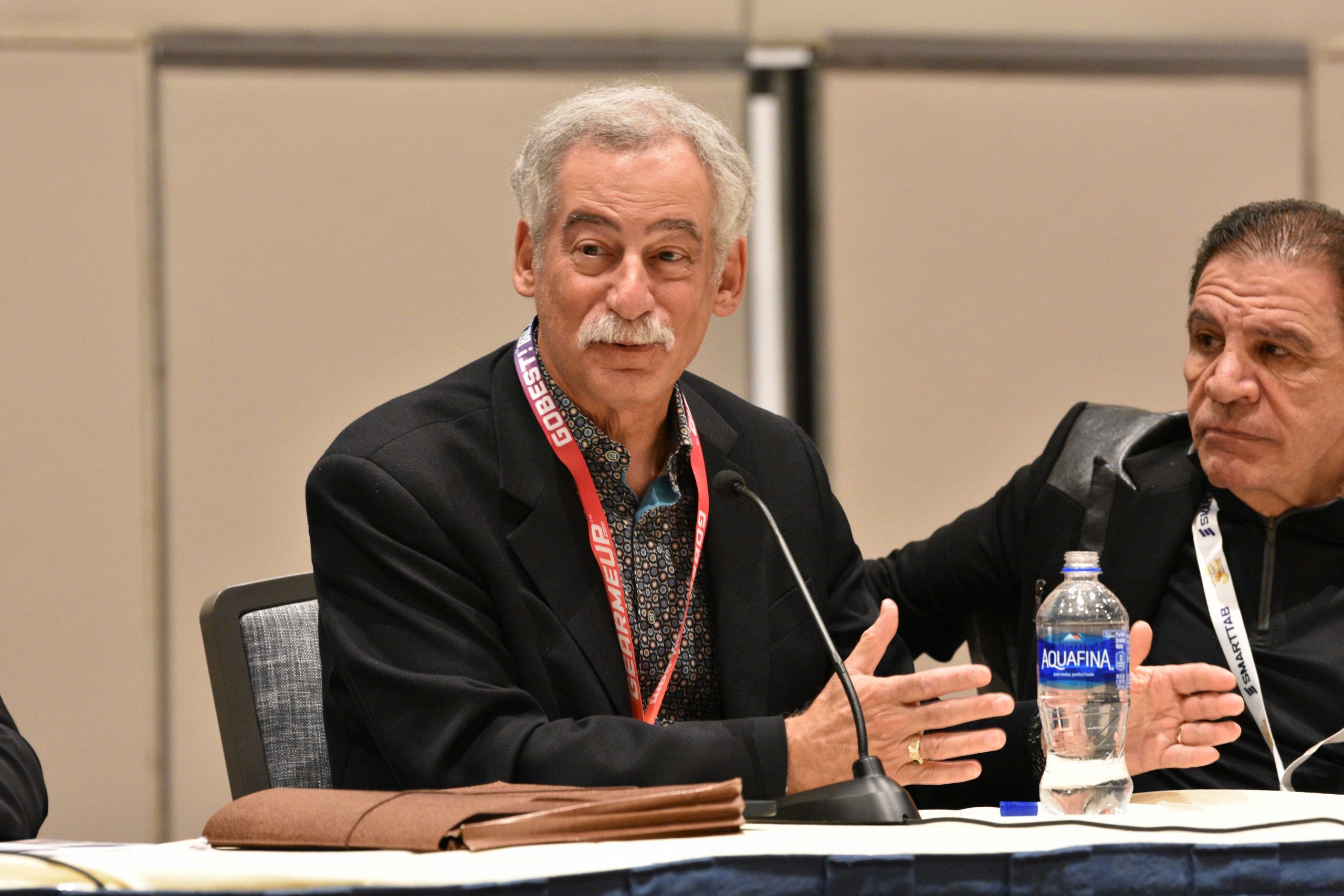
“The plaintiff lawyers have said they’re not going after the big clubs. They’re going after the small club owners because you guys are the low hanging fruit. You bury your heads in the sand. You don’t do anything to protect yourself, so you are easy pickings.”
—First Amendment attorney, Brad Shafer
MANACK: Each of you, in your interviews, had a slightly different view of entertainers. Harry and Deja Vu have the famous tagline,1000s of Beautiful Girls and Three Ugly Ones. While Michael said he has only ever wanted nines and 10s. And Slim noted that too many clubs treat their entertainers as second-class citizens. So my question is, do you think club operators are too focused on a specific body type or hair color, or do you think clubs should look at more variety in their entertainers? What’s your approach to the entertainers you have in your clubs?
BAUCOM: You have to have a variety. It’s like a smorgasbord; everybody’s taste is different. And you have to cater to those different tastes. I’ve had entertainers that on a scale might be a four or five who make more money than the nines and 10s. Because she has a good attitude. She knows how to approach customers and entertain customers. You need a good variety of entertainers all across the board, both ethnic and shape sizes, to have a successful club, whether you are an A club or a B club or a C club. That has worked for us.
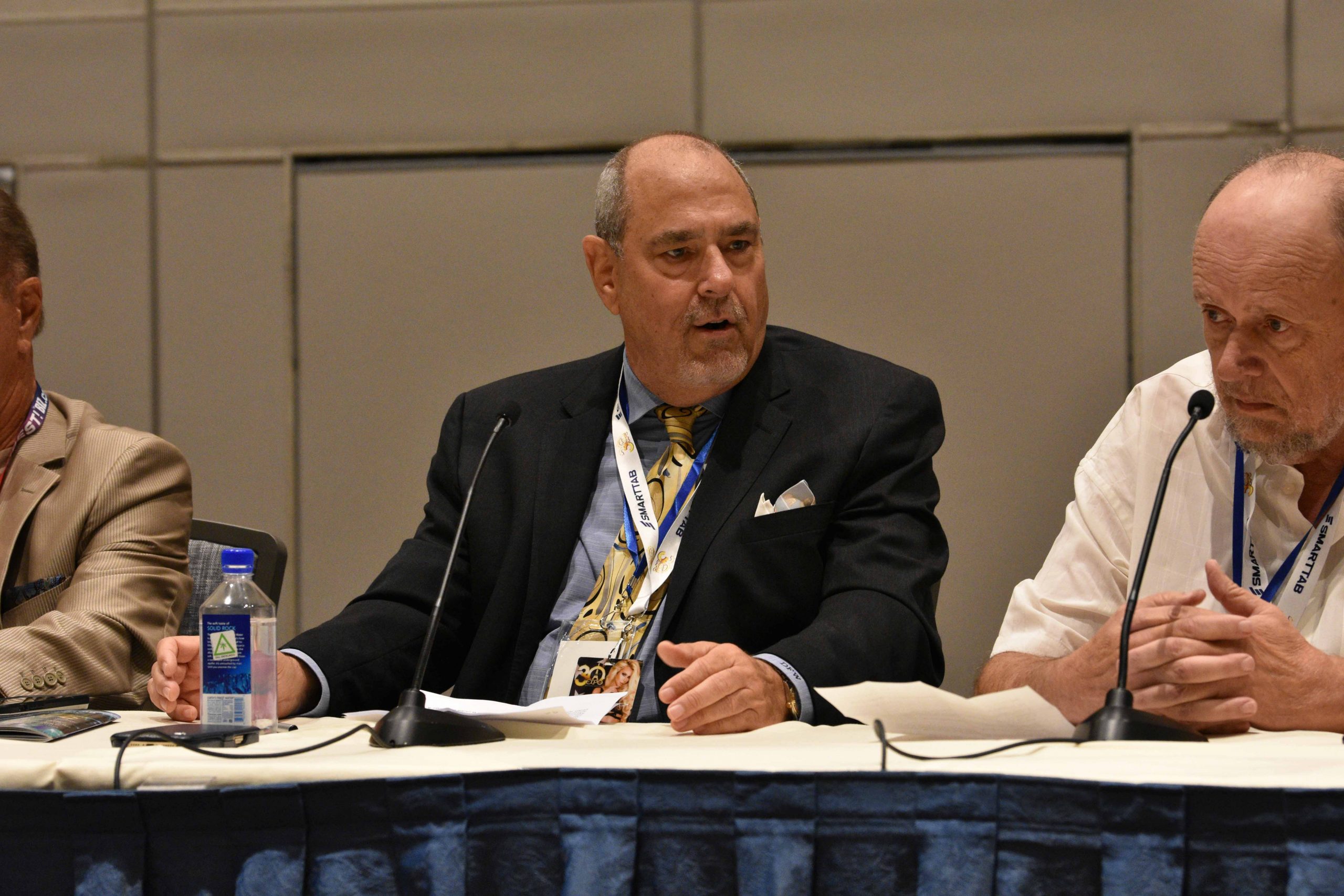
“So that’s the thing; these founders like a challenge. All club operators run into roadblocks. But if you want to pattern yourself after the success of these gentlemen, you have to accept the challenges and not let them defeat you.”
—ED Founder, Don Waitt
MOHNEY: It’s how you package it. When we interview, we’re interviewing for personality, not necessarily looks, A girl with the right personality can sell more than the most beautiful girl in the world. I’ve seen beautiful girls stand against the wall. Because in their life, they’ve never had to hustle. They’ve always been the girl when they were in high school or college that every guy was trying to get a date with. Now they have to get out there and compete with 100 other girls; they just don’t know how to do it.
You can take them by the hand and pull them around. But you can’t teach them personality. They just didn’t develop it. We are in the beauty business, but we are in the personality business more. If you keep that in mind when you interview the ladies, you’ll find that they can make more money than with just the beauties.
There was a Samoan girl who worked at one of my clubs. She was at least 50 to 70 pounds overweight; her breasts hung down to her waistline. I went to the manager said, “You can’t let this lady run around the club. My God, you’re going to scare off all your customers.” He said, “Harry, this girl is the biggest payout we got. She pays $500 a day and works the day shift. She’s got the personality.” So I sat down and I watched her. She met everybody at the door. Her opening line was, “Hi, have you ever been here before? Can I show you around the club? If you see any girls you like, let me know and I’ll get them for you.” She made them feel like she was their guide for their new experience. At the end of the day, they all either tipped her or bought a dance from her because of her personality.
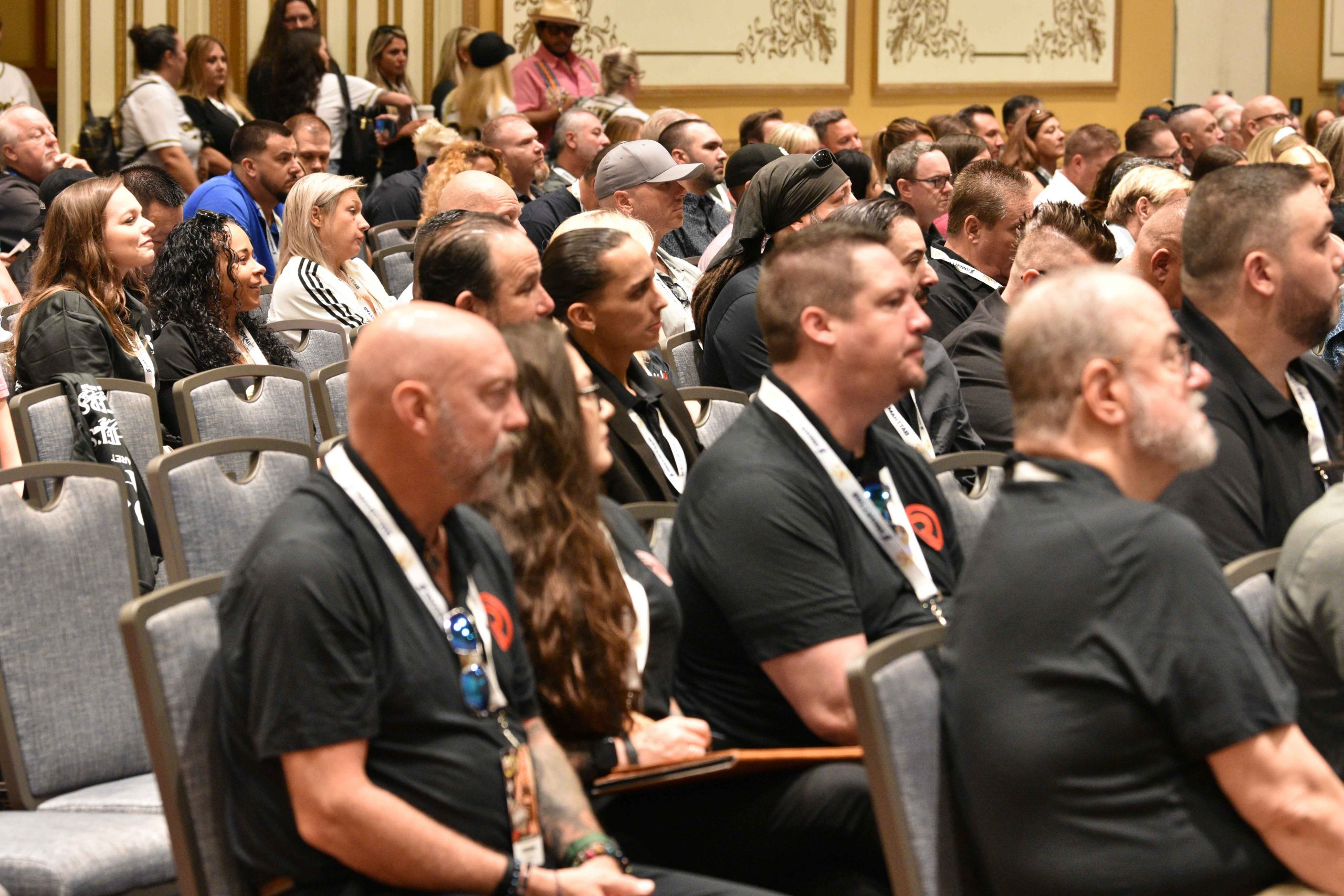
MANACK: Michael, we’ve interviewed you several times over the years and you talk about the nines and 10s you’ve always strived for. Have you ever changed your perspective on whether or not it has to be nines and 10s?
PETER: First off, I would have made the Samoan girl my general manager.
We have a different theory. And of course, I go back to when there were only two kinds of clubs in the country. One was a juice bar, which I never considered a gentlemen’s club. You paid a cover, you came in to meet the girls, and it was no alcohol. They were typically close to the airports where guys could run in, the girl would ask for a drink and it would be twice as much as the customer’s and there’d be no alcohol in it and there’d be a kickback to the girl. Nobody was paid in the club. Everything came out of the girl’s income. She kicked back so there was no payroll.
SHAFER: If I were your lawyer, I’d probably tell you to stop while you’re ahead. That’s just free legal advice.
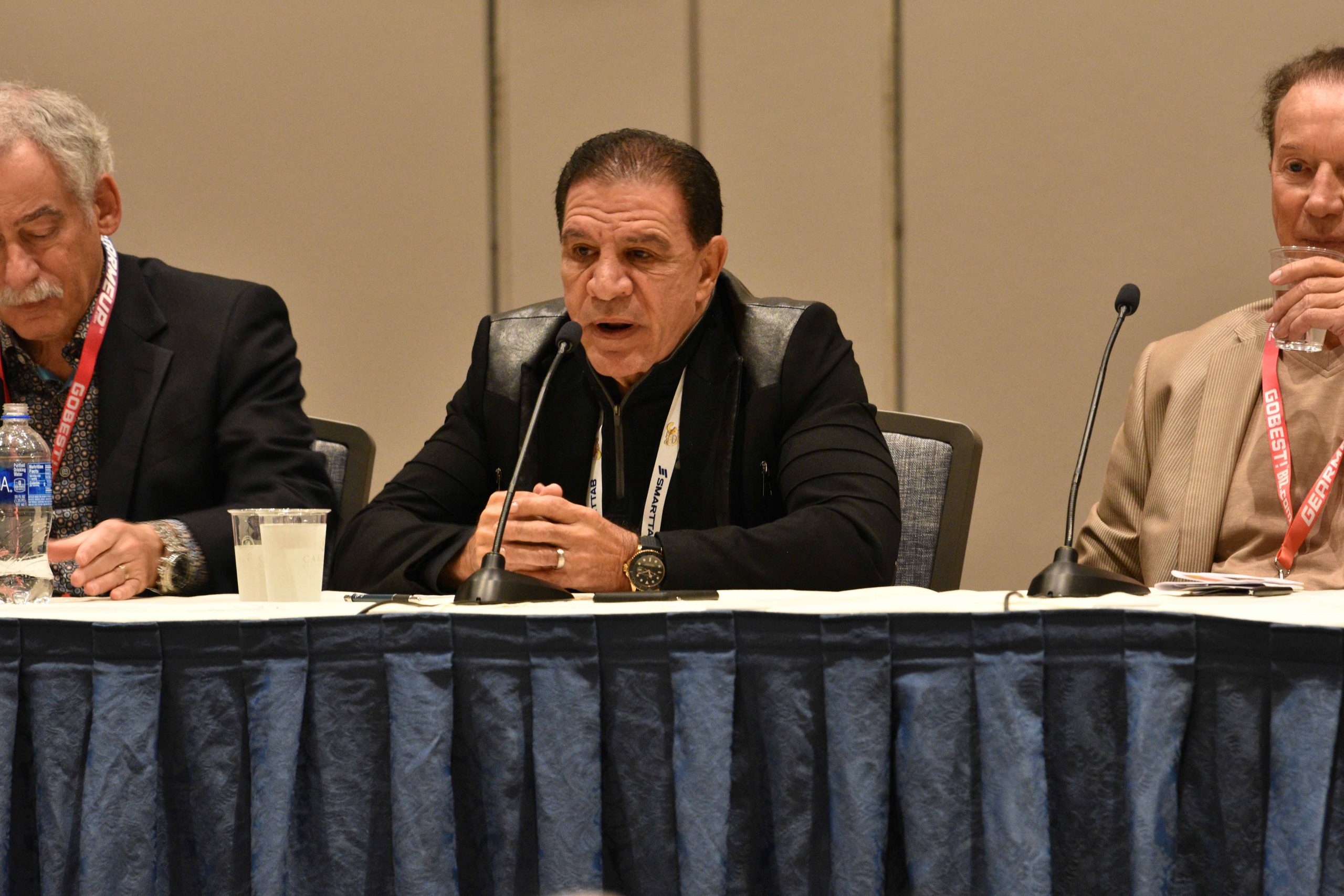
“My theory is if you’re letting your staff get paid by your dancers, you’re not going to get the quality you want. You’re going to get anything that walks through the door.”
—Michael J. Peter, Thee Dollhouse/ Pure Platinum/ Solid Gold
PETER: No one’s suggesting that’s the way it is today. That’s why we changed it. That’s how the gentlemen’s club concept came alive. In any event, everything came from that concept of payout, payout, payout. For every girl they put on the floor, you’re getting another $10 or $20 tip out. So if I’m a general manager, I want to hire every girl that walks through the door, I don’t care if she’s a two or a 10. I don’t care if she’s got a personality, or no personality. I want her money. Because that’s what I live off of.
My theory is if you’re letting your staff get paid by your dancers, you’re not going to get the quality you want. You’re going to get anything that walks through the door.
In an ideal world, and what we always tried to teach, was to get the best-looking girl that we could since you want to make the business mainstream, both for the customers and the girls. We used to teach them etiquette, the proper way to dine. How to talk to customers and not ask for a drink. Getting rid of the hustle. That’s the reason we put staff in tuxedos and girls in gowns. Our whole job was to bring the class of the girl working for us— the look, the attitude, and the personality—to mainstream America.
When you see Penthouse and Playboy putting a fat ugly girl in their centerfold, come and talk to me, maybe I’ll change my attitude. But for now, I want to be the best in the market.
MANACK: Don, what is a common denominator shared by these founders that you saw during the interviews?
WAITT: One of the common denominators I found is their work ethic. All these guys were cutting grass for money when they were youngsters. Slim worked for the city trimming tree limbs. Harry used to work at a chicken slaughterhouse. They all had a number of jobs. These are guys that get up at seven in the morning, and don’t go to bed until midnight. Everybody up here is in their 60s or 70s; I think Harry just celebrated his 80th birthday. But they’re still cutting deals. They have not slowed down at all. So if you want to be successful, you need to have a work ethic like they do, where you’re just non-stop working, hustling, making deals and not slowing down.
BAUCOM: I need to work. At the end of the day, you need to be able to look in the mirror and say you’ve done something that was an accomplishment that day. My kids keep asking me when am I going to retire and I say never. I’ll have to take a half day off just to go to my own funeral.
If you enjoy what you’re doing, if you’ve worked your whole life, it comes easy. If I was to stop right now and go home and sit and watch Law & Order all day, I couldn’t make it. I’d be dead. This industry provides a job that I enjoy doing and you wake up with new challenges every day. And it’s just a great job to have. So why slow down? Why stop?
MOHNEY: I don’t think it’s necessarily that this group has a work ethic. I think it’s more that we have a drive to build things. Years back I had a girlfriend, a little college girl with lots of social causes. We used to have some heated debates about why the capitalists keep building. I tried to explain to her that we’re no different than Michael Jordan who gets paid $100 million a year, yet he still goes out and plays his heart out every year to win. As part of the team. We’re just players. We want to build; we want to play the game. And success is part of the reward. We don’t count the money; the money doesn’t really mean a lot to us after a while. What does mean something is seeing the success, seeing what we built work and seeing that the team we surround ourselves with is successful.

“If I was to stop right now and go home and sit and watch Law & Order all day, I couldn’t make it. I’d be dead. This industry provides a job that I enjoy doing and you wake up with new challenges every day. It’s just a great job to have. So why slow down? Why stop?”
—Dave Baucom, MAL Entertainment
MANACK: Where do you all see the industry 10 years from now?
PETER: That’s a good question. I had breakfast with these gentlemen this morning and Don made a comment. He said 80 percent of you guys (at the EXPO) are single-unit, smaller operators. I gave an EXPO Keynote Address some time back and predicted that the industry would meld into four or five major multi-unit companies. And that the industry would get more and more sophisticated. We’re seeing that happen today. It happens in everything, whether it’s big box stores, although the big box stores are being eaten up by Amazon. So you have to get bigger and better, nicer and more ingenious and creative in the package of entertainment that you sell.
You are going to have to continue to upgrade and make your talent and your clientele grow toward mainstream to stay the course. One thing that customers and staff love is when they see you building something, improving your club, adding a VIP room, changing the entrance, striping the parking lot, adding valet service, whatever it is, putting in a little kitchen. It keeps everybody entertained and makes them part of the team. Both your customers and your employees feel like they’re part of something that’s growing.
MOHNEY: Our future depends on us. I see a lot of club operators who probably won’t be here in years to come because they’ll probably be in prison somewhere. I’ve seen this pendulum swing back and forth. Now it seems like a lot of club operators don’t want to run clubs anymore. They want to run brothels.
Those who do like Michael suggested—concentrating on enhanced entertainment—will be successful. And they’ll be here tomorrow. We’ve been in the pendulum swinging left for the last 15 years. It’s probably reached a point we’re going to see it start swinging back to the right. It always does historically. In the years I’ve been involved in this group up here, we’ve seen it go both ways. We’ve seen censorship and repression, we’ve seen raids, we’ve seen arrests, we’ve seen legal issues. In the future, if you don’t operate a legal club, the entertainers aren’t going to be suing you over labor, but instead because you promoted prostitution. They are always looking for the easy retirement.
MANACK: Brad, do you think the industry is going to see a situation where, because of these gig economy lawsuits, we will have several states across the country, like California, that are forced into an employee model?
SHAFER: I think it’s going to be a mixed bag around the country. I actually wrote my own law to distinguish employees from independent contractors. Mike Ocello and Angelina Spencer from ACE and I worked with a bunch of lobbyists. They were generally Republican lobbyists. And that bill just passed in West Virginia. So the distinction of employees and independent contractors in West Virginia is my law. I think there are a lot of states that are going to maintain that way. There are going to be other states that are going to try to push people to have gig economy workers and include exotic dancers in there as employees as well. What you need to do is be able to survive in that type of environment. Because those club owners, for example, in California, who have changed have found that it can be very problematic. So it’s going to be something that people are going to be fighting for the next 10 years.
WAITT: Let me hop in real quick. Because I want everybody to continue reading ED Magazine and coming to the EXPO for the next 10 years, I think the industry is going to do great and you’re all going to become fabulously wealthy!
